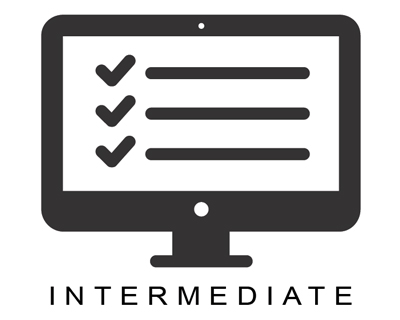We will summarize the FSMA Produce Safety Rule standards in Subpart F, the current FDA risk assessment associated with BSAAO, and associated research efforts. Commonly-used BSAAO will be discussed, including how these requirements may affect the compost industry. We will outline additional benefits and challenges of using treated BSAAO, and identify science-based management strategies to… Continue reading POL.114-FSMA Produce Safety Rule and how it may affect the composting industry, Part 2: FSMA PSR requirements – Subpart F (BSAAO) and how the compost industry can support growers-AC21.USCC
Category: Policies
POL.212-Vermont’s Universal Recycling Law drives infrastructure development throughout the state.-AC21.USCC
successes, challenges and opportunities for organics management Speakers: Natasha Duarte Duration: 21 minutes Credits: 0.5 Member Price: $30.00 Non-Member Price: $52.50 Purchase Course Now
POL.115-FSMA Produce Safety Rule and how it may affect the composting industry, Part 3: Paperwork necessary for the where, what, and how you supply a BSAAO-AC21.USCC
We will summarize the FSMA Produce Safety Rule standards in Subpart F, the current FDA risk assessment associated with BSAAO, and associated research efforts. Commonly-used BSAAO will be discussed, including how these requirements may affect the compost industry. We will outline additional benefits and challenges of using treated BSAAO, and identify science-based management strategies to… Continue reading POL.115-FSMA Produce Safety Rule and how it may affect the composting industry, Part 3: Paperwork necessary for the where, what, and how you supply a BSAAO-AC21.USCC
POL.113-FSMA Produce Safety Rule and how it may affect the composting industry, Part 1: Intersection of FSMA PSR with other industry standards and resources for the compost industry-AC21.USCC
We will summarize the FSMA Produce Safety Rule standards in Subpart F, the current FDA risk assessment associated with BSAAO, and associated research efforts. Commonly-used BSAAO will be discussed, including how these requirements may affect the compost industry. We will outline additional benefits and challenges of using treated BSAAO, and identify science-based management strategies to… Continue reading POL.113-FSMA Produce Safety Rule and how it may affect the composting industry, Part 1: Intersection of FSMA PSR with other industry standards and resources for the compost industry-AC21.USCC
POL.110-Compost Advocacy and Coalition Building-AC22.USCC
The NJ Composting Council in the last 3 years has gone from formation to influencing policy by building a coalition that includes composting industry members, like minded non-profits, academics, current and former regulators, and even groups who some might find odd partners. This coalition included both grassroots organizations and small companies as well as the… Continue reading POL.110-Compost Advocacy and Coalition Building-AC22.USCC
POL.218-Utilizing Life Cycle Assessment for Predicting Greenhouse Gas Reductions with Composting-AC20.USCC
This video gives information on the Life Cycle Assessment (LCA) and how different models can be utilized for composting. Speakers: Michael Bryan-Brown Duration: 31 minutes Credits: 1.0 Member Price: $60.00 Non-Member Price: $105.00 Purchase Course Now
POL.217-Regulatory Approach: Review of Policies and Legislation for Compostable Products – Labeling, EPR, and Organic Standards-AC22.USCC
Speakers: Neil Rhodes, Edgar Yepsen Duration: 1 hours 3 minutes Credits: 1.5 Member Price: $90.00 Non-Member Price: $157.50 Purchase Course Now
POL.215-Compost and Phosphorous: Managing Regulations and Risks-AC22.USCC
For decades, compost (and other organic recycled product) application rates have been governed by the amount of plant available nitrogen they provide. However, over the last 5-10 years, concerns about phosphorous application, and its effect on the environment, have led to State regulation limiting its application. Currently, 16 states have phosphorus regulation in place, and… Continue reading POL.215-Compost and Phosphorous: Managing Regulations and Risks-AC22.USCC
POL.214-SB 1383 in California: Organics Collection for Everyone, Everywhere, All of the Time-AC22.USCC
SB 1383 is an ambitious attempt in California to simultaneously address both climate change and resource management. Focussing on methane reduction, SB 1383 is anticipated to create hundreds of new residential, commercial and institutional food scrap collection programs, adding to CA’s already robust composting infrastructure. This presentation will provide a quick overview of the legislation… Continue reading POL.214-SB 1383 in California: Organics Collection for Everyone, Everywhere, All of the Time-AC22.USCC
POL.213-Expanding Organics Management in Washington State: Challenges and Opportunities-AC22.USCC
Like in other states, almost 30% (by weight) of the disposed load in Washington is organic material. As Washington takes major steps to enact climate change policy, diversion of this landfill load to avoid generation of a super emitter gas – methane – is now under serious consideration. The imperative to address food waste has… Continue reading POL.213-Expanding Organics Management in Washington State: Challenges and Opportunities-AC22.USCC

